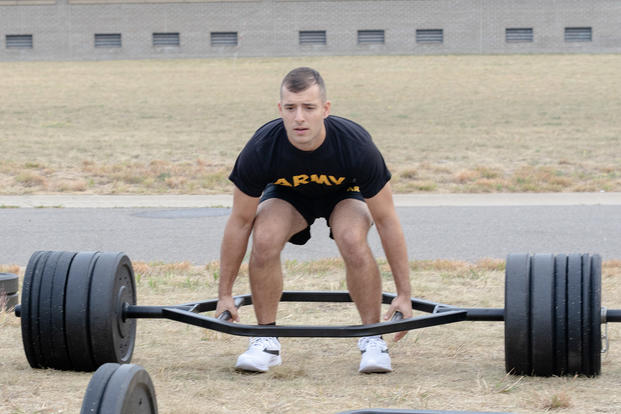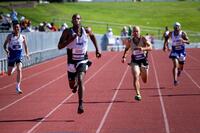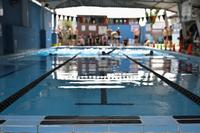Joining the military requires significant forethought and preparation. This young man preparing to join the Army has the right mindset; however, he may require more time to meet the physical and body composition (height/weight/body fat) standards.
Here is his question explaining his goal and current situation:
Hi Stew. I am finishing my athletic career in football and rugby and joining the Army soon. What should I be focusing on now and the next 12-16 weeks or so? Weightlifting and cardio or calisthenics and cardio? I need to get a better ACFT score, and hand-release push-ups, plank and running are the areas I need the most improvement. Currently, I weigh 260 for 5'11 so I need to lose weight prior to joining the Army. Thanks, Lou
Lou, thanks for considering serving, and it is wise to start your physical preparation long before you even talk to a recruiter. While the Army has height/weight standards, they are not absolute. If a person does not meet the standards for their height -- a 5-foot-11 male between ages 17-20 must be 185 pounds -- body-fat percentage will be measured. As long as you are under 20% body fat, you can bypass the height/weight standards.
Also, scoring 540 or above on the Army Combat Fitness Test, with a minimum of 80 on each event, will offer an exemption to people who are out of range for either of the above standards.
Any waiver from the height/weight standards and body-fat limits requires a soldier to be strong; have significant muscle stamina and endurance; and be lean (more muscle mass than body fat). Basically, an athletic build is required. From the information you shared, it sounds as if you are coming from an athletic history of speed and power (lifting/contact sports), so I would focus on endurance and muscle stamina at this point.
It may take you longer than 3-4 months to get below 200 pounds; however, it is common for former power athletes to lose weight quickly once they are not eating to be big. Changing your food intake to a normal diet of 2,000 calories a day, coupled with building a calisthenics and cardio base, will be a significant change, but at this point, I would avoid the weight room as well as running too soon.
Walking, biking, rowing and swimming should make up a majority of your non-impact cardio options to build an aerobic base, but as you start to see losses each week, progressing with running is the next step. Your feet, ankles, knees and hips will thank you for not running too much, too soon, as heavier runners can be more susceptible to overuse injuries.
Calisthenics may be difficult for you at the beginning, because moving your body weight for multiple repetitions and increasing volume each week also require progression. Opting for an easier option, such as assisted pull-ups, push-ups and plank poses (on knees), will be part of that progression to handle a load of calisthenics fully as you get lighter.
Consider 12-16 weeks of calisthenics and cardio (mostly non-impact) and a new mindset when it comes to eating -- not eating to gain weight. A focus on the plank, hand-release push-ups and a cardio base should be your first focus on these most obvious weaknesses. Then, as you get to a level of conditioning and body weight (200-220 pounds), you can shift to focus more on Army-specific, load-bearing skills such as rucking and deadlifts, power throws, sled pulls, farmer walks and sprints.
Your final months of preparation can be more of a block periodization model, where you focus 3-4 weeks on calisthenics and cardio, followed by one week of focusing on Army strength and power events. This way, you can continue to work on weaknesses and maintain some of your athletic strengths, which will carry over nicely to many of the load-bearing, power and strength events of not only the ACFT, but also the future training and Army job itself.
Stew Smith is a former Navy SEAL and fitness author certified as a Strength and Conditioning Specialist (CSCS) with the National Strength and Conditioning Association. Visit his Fitness eBook store if you're looking to start a workout program to create a healthy lifestyle. Send your fitness questions to stew@stewsmith.com.
Want to Learn More About Military Life?
Whether you're thinking of joining the military, looking for fitness and basic training tips, or keeping up with military life and benefits, Military.com has you covered. Subscribe to Military.com to have military news, updates and resources delivered directly to your inbox.


















